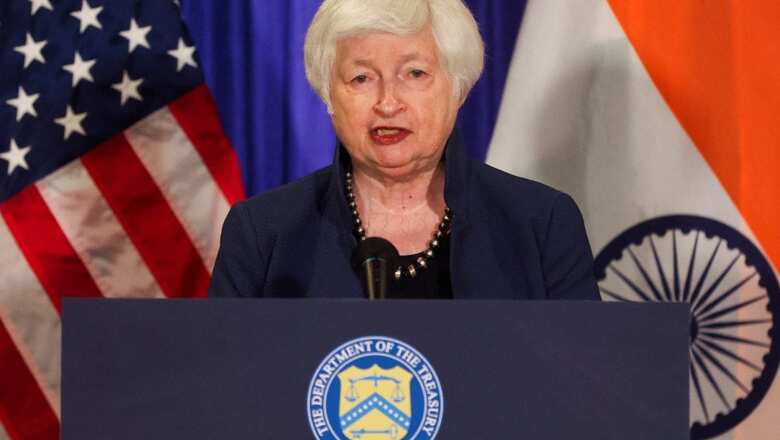
views
Key economic officials from the United States and China concluded a two-day meeting on Tuesday in Beijing, exchanging views on their domestic outlooks and speaking about worries such as overcapacity.
The talks come amid concerns about China’s growth, as the world’s second biggest economy struggles with a property sector crisis and prospects of sagging productivity.
As Beijing pushes to boost its fresh growth drivers — dubbed the “New Three” industries including electric vehicles and batteries — there has been unease that the sectors could produce excessive capacity.
In the latest meeting of the economic working group, set up after US Treasury Secretary Janet Yellen visited Beijing last year, officials shared views on domestic macroeconomic outlooks, said the US Treasury Department and Chinese Ministry of Finance in separate statements.
Both sides also discussed cooperation on shared challenges like debt issues in low-income economies, and agreed to meet again in April, the Treasury said.
“US officials also frankly raised issues of concern, including China’s industrial policy practices and overcapacity, and the resulting impact on US workers and firms,” said the Treasury Department.
The department added that Yellen “looks forward to a return visit to China this year.”
According to a survey of businesses by the American Chamber of Commerce in China released this month, overcapacity is becoming a concern in certain sectors.
In an interview broadcast over the weekend, former US president Donald Trump, — frontrunner for the 2024 Republican presidential nomination — said he might impose a 60 percent or higher tariff on Chinese goods if elected again.
In its statement, the Chinese Finance Ministry said Beijing “expressed concern over the US additional tariffs on China, two-way investment restrictions, as well as sanctions and containment against Chinese companies” during the latest talks.
The economic group, alongside a financial working group, met for the first time in October and later, ahead of the Asia-Pacific Economic Cooperation summit in San Francisco last November.
The groups report directly to Yellen and Chinese Vice Premier He Lifeng.


















Comments
0 comment